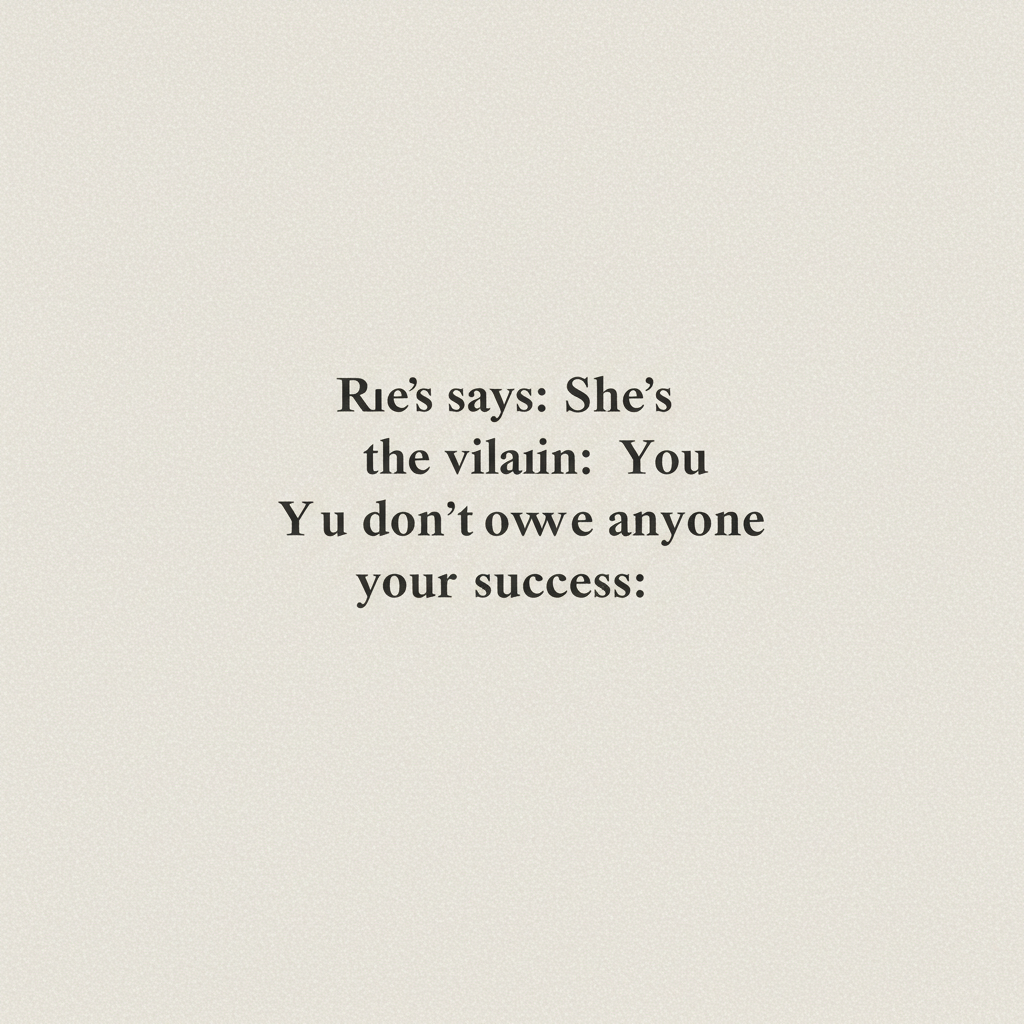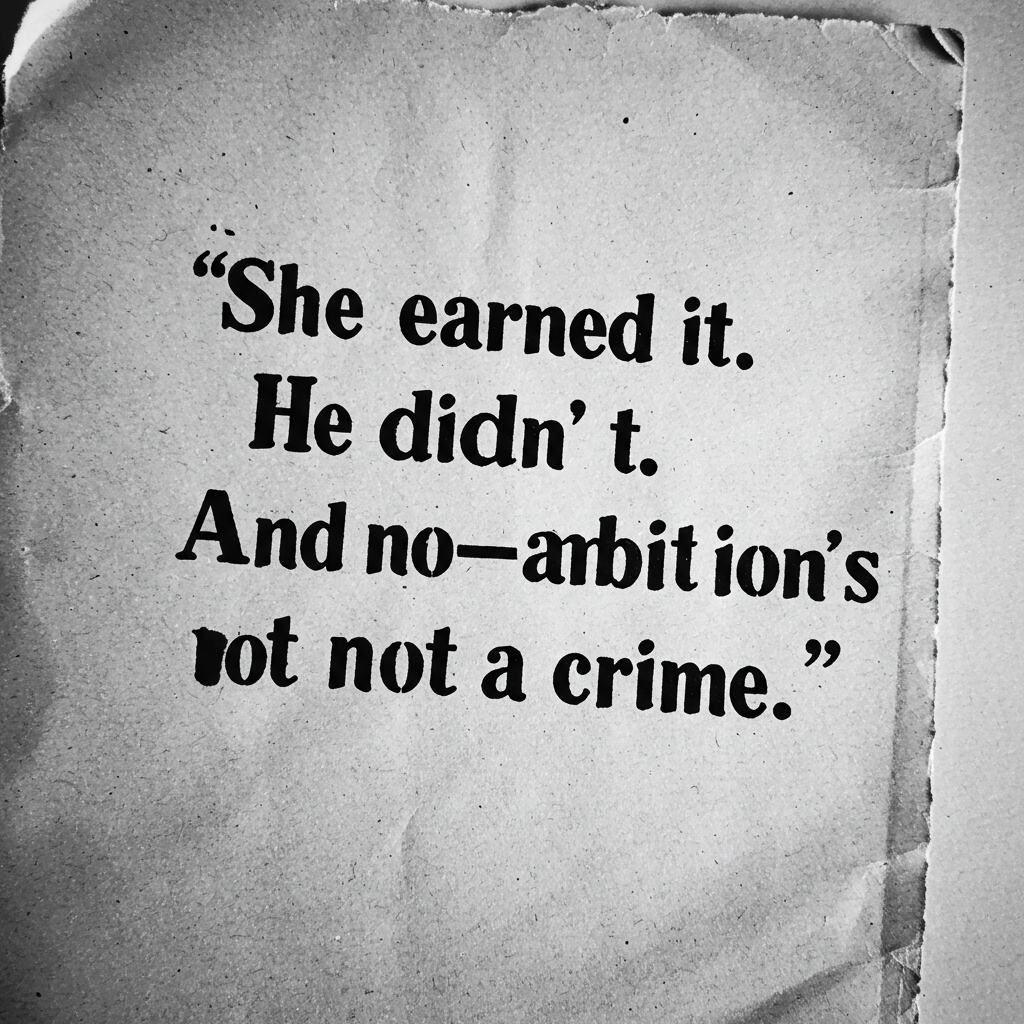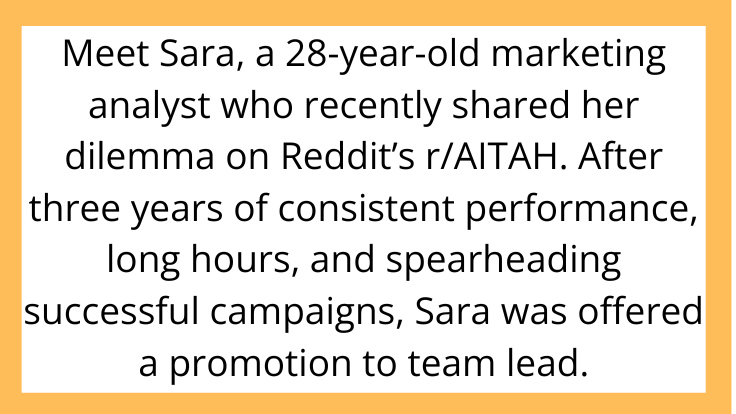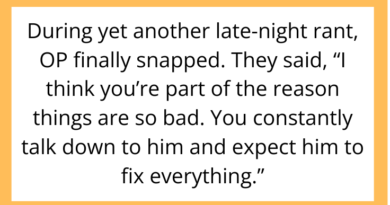AITAH for Not Giving Up My Promotion to Keep the Peace With My Coworker?
Climbing the career ladder is no easy feat—especially when your success sparks resentment among colleagues. In this AITAH scenario, a young professional faces backlash for accepting a promotion her coworker also wanted. Is she wrong for taking the opportunity, or is her coworker letting envy cloud professionalism?
Let’s unpack the drama and find out who’s really in the wrong.
The Setup: Two Candidates, One Promotion

Meet Sara, a 28-year-old marketing analyst who recently shared her dilemma on Reddit’s r/AITAH. After three years of consistent performance, long hours, and spearheading successful campaigns, Sara was offered a promotion to team lead.
She was ecstatic—until her coworker, Mark, 32, who also interviewed for the same position, found out.
Mark didn’t take it well.
The Fallout: “You Knew I Needed This More”

Mark confronted Sara privately, telling her she should have “stepped aside” because he had a family to support and was going through a tough time financially. He accused her of being selfish and career-obsessed, saying, “You already have everything—why take this from me too?”
Word got around the office, and now some coworkers have taken Mark’s side. A few have gone as far as icing Sara out of lunch invites or ignoring her in meetings.
Sara now feels isolated and unsure. She turned to Reddit to ask: AITAH for not turning down the promotion when I knew my coworker was counting on it?
The Arguments: Fairness, Feelings, and Professionalism

The Case for Sara: Hard Work Pays Off
Sara earned the promotion. She applied, went through the interview process, and was selected on merit. Asking someone to step down from a career opportunity because another candidate wanted it more—without outperforming—isn’t just unreasonable, it’s unprofessional.
Workplaces aren’t about who “needs” it more emotionally or financially; they’re about who’s most qualified to lead and deliver results.
Moreover, Sara’s responsibility is to her growth—not managing the feelings of colleagues who didn’t get the job.
The Case for Mark: A Human Reaction
To be fair, it’s not uncommon for disappointment to sting—especially when career advancement feels out of reach. Mark’s response may come from a place of stress and financial pressure, not malice.
But even if his feelings are valid, his reaction—guilt-tripping Sara and rallying coworkers against her—crosses a line. It’s one thing to be upset. It’s another to sabotage a colleague’s well-earned success.
Reddit Responds: A Clear Verdict

Most Redditors had one thing to say: Sara, you are not the villain.
“You didn’t steal anything. You earned it. Mark is not entitled to your job just because he’s having a hard time,” one top comment read.
Others pointed out that this kind of emotional manipulation can be a red flag in workplace culture: “You are not responsible for Mark’s career or finances. HR chose the best candidate. That’s not on you.”
Still, some commenters acknowledged the nuance: “It’s okay to feel bad for a friend, but don’t let that guilt keep you from growing.”
A Deeper Issue: When Work Becomes Personal

What this story really highlights is a deeper truth: boundaries at work matter. While empathy has a place in every workplace, professional decisions shouldn’t be dictated by personal circumstances or guilt trips.
In fact, feeling pressured to turn down earned opportunities can reflect toxic culture—not team spirit.
This also raises a question of leadership: Should Sara have to repair the rift just because she got the promotion? Or is it on management to address team dynamics?
Moving Forward: Can This Be Fixed?

For Sara:
-
Maintain professionalism while asserting your role.
-
Document interactions if they turn hostile.
-
Don’t feel obligated to apologize for earning your success.
For Mark:
-
Take the loss with grace. Use it as motivation—not ammunition.
-
Seek feedback from management to grow for future opportunities.
-
Recognize that other people’s success doesn’t diminish your own.
The Verdict: No, You’re Not the Villain for Taking What You Earned

At the end of the day, ambition isn’t a crime. Sara didn’t sabotage anyone—she succeeded on her own merit. If that makes someone else uncomfortable, it’s a reflection of their insecurities, not her ethics.
Sometimes, setting boundaries means being okay with others being upset—especially when their expectations weren’t fair to begin with.



